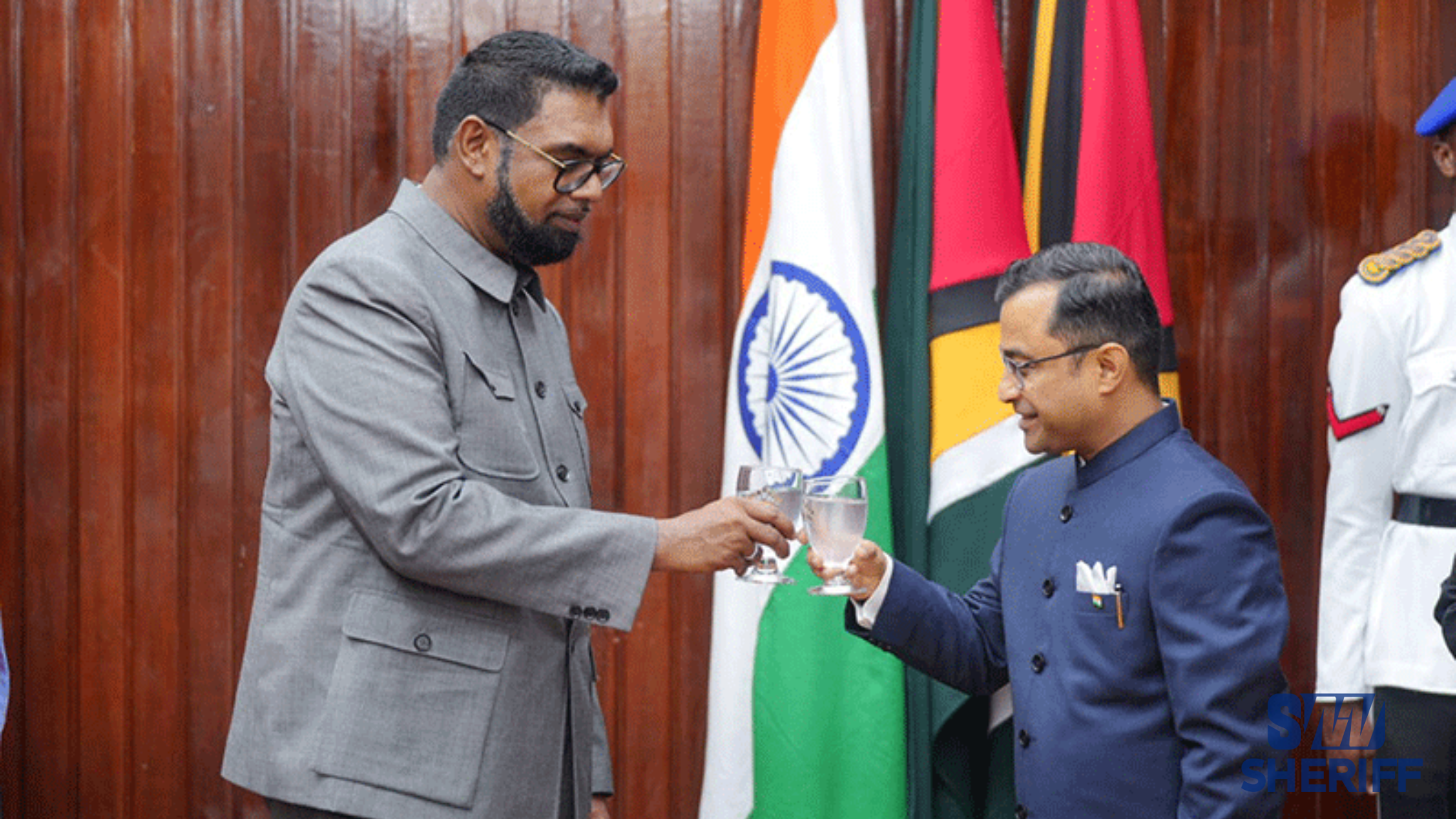
India has urged Venezuela to respect international law and refrain from provocative actions related to the ongoing border controversy.
Speaking at a press briefing in Georgetown on Saturday, Indian High Commissioner to Guyana, Dr. Amit Telang, called on Venezuela to honour its commitments under the Argyle Declaration and allow the International Court of Justice (ICJ) to resolve the matter peacefully.
“Our position is that Venezuela should strictly abide by the Argyle Declaration, which is also Guyana’s position,” Dr. Telang stated. “Any action, including proposed elections in Guyana’s Essequibo region, goes against the spirit of that declaration and is not something India would support.”

He reaffirmed India’s backing for the ICJ process and the peaceful settlement of disputes, noting that Guyana had already presented its case and committed to accepting the Court’s ruling.
In recent months, Venezuela has escalated its posture by announcing plans to install a governor and legislative council in the resource-rich Essequibo region.
Dr. Telang said any assistance from India on this issue would depend on a formal request from the Government of Guyana.
“It depends on the kind of support Guyana seeks from us,” he said. “We are strong partners, and India will continue to stand by Guyana.” He declined to speculate on the nature of potential support but added, “Once a request is made, India is ready.”
India and Guyana share longstanding diplomatic ties and development cooperation across health, education, security, and energy sectors.
During the same briefing, Dr. Telang also addressed recent developments in South Asia following what Indian authorities have labelled an “unprecedented terrorist attack” on civilians.
He condemned the assault, which India has linked to Pakistan-based groups, describing it as a “heinous act” that targeted unarmed civilians, some allegedly identified by their religion.
“It was necessary that a strong message be sent,” he said. “We are grateful to the international community, almost without exception, for standing with India and denouncing the attack. Terrorism has no place in civilised society.”
Dr. Telang thanked the Guyanese government for issuing a strong statement of support. President Dr. Irfaan Ali had also welcomed the subsequent ceasefire between India and Pakistan, saying, “We urge all parties to respect the terms of the ceasefire and allow peace to foster and grow.”
Moreover, the High Commissioner recalled that India has endured decades of terrorism, beginning with the 1993 Mumbai bombings, and continuing through to more recent attacks.
He named groups like Lashkar-e-Taiba and Jaish-e-Muhammad, stating that they continue to operate under new names while allegedly receiving support from within Pakistan.
India’s military response came on May 7, with targeted strikes on nine locations in Pakistan’s Punjab province and Pakistan-occupied Jammu and Kashmir. According to Dr. Telang, the sites were carefully selected to avoid civilian casualties and were directly linked to terrorist operations.
“These were proportionate and focused strikes. India even informed the Pakistani military afterwards to underline that this was not an escalation, but a necessary response,” he said.
Following retaliatory attacks by Pakistan, including drone strikes and shelling of civilian sites, India launched further defensive strikes. The conflict de-escalated after Pakistan contacted both India and the United States to propose a ceasefire, which took effect on May 10.
Dr. Telang said India is also reassessing its participation in the Indus Waters Treaty, a 1960 agreement brokered by the World Bank, due to Pakistan’s refusal to renegotiate its terms and ongoing acts of hostility.
“We’ve asked for dialogue for over 13 years. The demographic and environmental conditions have changed, but Pakistan refuses to engage. After this latest attack, it cannot be business as usual,” he said.
Meanwhile, India has not withdrawn from the treaty, it has placed it under review. The High Commissioner reiterated that while India is open to future talks with Pakistan, such discussions must centre on terrorism and the status of Pakistan-occupied Jammu and Kashmir.
“There can be no normal engagement until terrorism is addressed head-on,” he said. “Jammu and Kashmir is a bilateral issue. We don’t accept third-party mediation, and the question remains when Pakistan will return the territory it continues to occupy illegally.”
India continues to receive international backing for its stance, and Dr. Telang stressed that its actions are aimed at defending its people, not provoking conflict.
“Terrorism undermines peace and development not just for the countries involved, but for the entire region. It must be confronted with unwavering resolve,” he said.









